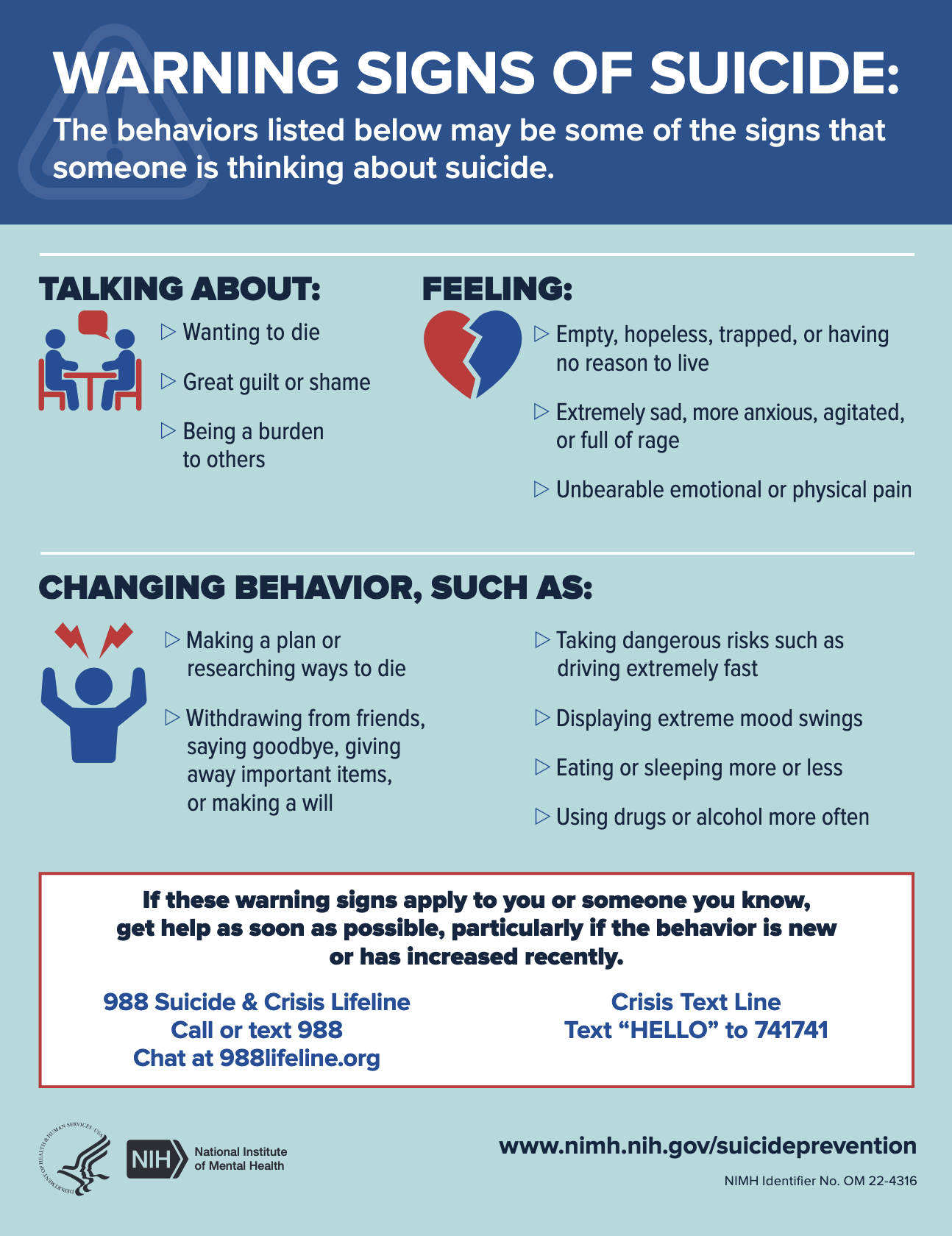 Mental health has become a crisis among America’s youth, and experts say the unique challenges and needs of young men are not receiving enough attention. Doctors, teachers and family members may not recognize the symptoms of depression, which in men can include anger, irritability and aggressiveness, according to the National Institute of Mental Health. Men are also less likely than women to “recognize, talk about and seek treatment” for depression, which is sometimes stereotyped as a women’s problem, the agency said.
Mental health has become a crisis among America’s youth, and experts say the unique challenges and needs of young men are not receiving enough attention. Doctors, teachers and family members may not recognize the symptoms of depression, which in men can include anger, irritability and aggressiveness, according to the National Institute of Mental Health. Men are also less likely than women to “recognize, talk about and seek treatment” for depression, which is sometimes stereotyped as a women’s problem, the agency said.
While teenage girls attempt suicide more often than teenage boys, according to the American Foundation for Suicide Prevention, boys are more likely to die by suicide. Suicide rates for teenage boys and girls rose steadily from 2007 to 2015. In 2015, there were 1,537 suicides documented for boys ages 15 to 19 and 524 for girls, according for the Centers for Disease Control and Prevention.
Boys see seeking help as “a sign of weakness,” said Dennis Barbour, president of the Partnership for Male Youth, a group of organizations that focus on the health of young men.
Compounding the issue, almost half of adolescents with mental health issues don’t receive care, according to a 2016 report from the federal Substance Abuse and Mental Health Services Administration. The report, which looked at data from 17,000 adolescents ages 12 to 17, also found that girls were more likely than boys to receive mental health care in both schools and medical settings.
Around puberty, girls typically begin to see a gynecologist, who may spot mental health issues and refer them to other services, Barbour said. He said teenage boys tend to see doctors less frequently, particularly if they no longer see a pediatrician.
“In terms of depression, they don’t usually have a place for health care,” Barbour said of boys, “so that any depressive symptoms can be overlooked, even by parents.”
When young men don’t get the help they need, the consequences can be devastating. Echoing the suicide pattern for boys and girls, men are about 3.5 times more likely to die by suicide than women, though women are more likely to attempt suicide.
Earlier this year, the American Academy of Pediatrics updated its guidelines on depression to urge that all teenagers be screened for symptoms by their pediatricians.
But Barbour said few guidelines exist in the U.S. to help parents, educators and clinicians understand young men’s needs, so the Partnership for Male Youth is working to fill the void. The organization created a guide for health providers that details boys’ unique needs around health, including how they may express mental health issues.
Excerpted from “Boys Need Better Access to Mental Health Care. Why Aren’t They Getting It?” on NBC news online. Read the full story here.
Source: NBC | Boys Need Better Access to Mental Health Care. Why Aren’t They Getting It?, https://www.nbcnews.com/news/us-news/boys-need-better-access-mental-health-care-why-aren-t-n947941 | © 2019 NBC Universal
A screening can help you determine if you or someone you care about should contact a mental health professional. Care Coordinators can arrange a free 30 minute Care Consultation so you can explore options with an expert. Call or email our Care Coordinators at 650.688.3625 or careteam@stage.chconline.org to set up an initial Consultation appointment.





